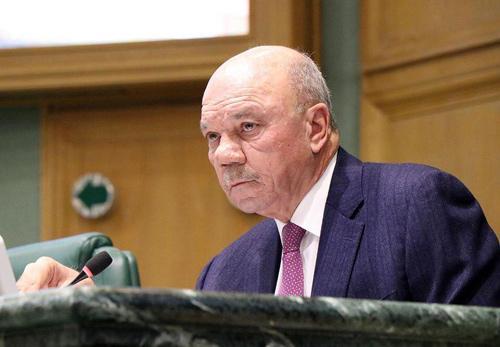- Local News
- Thu-2020-05-28 | 03:22 pm

Senate President Faisal Fayez said that the recommendations come in compliance with the directives of His Majesty King Abdullah to activate the partnership between the executive and legislative authorities, and its keenness to support the government during the crisis, the Jordan News Agency, Petra, reported.
The administrative committee’s recommendations included forming specialised committees to manage the crisis programmes in coordination with sectors while the concerned agencies implement directives, plans, programmes and the sustaining of work documentation in the various government agencies.
The tasks of the committees deal with restructuring the state budget, ensuring that revenues from sales tax are achieved through economic activities and setting up a mechanism for collecting income tax for 2019, among others.
The recommendations of the Health Committee called for unifying health service providers and organising them under a national umbrella and a single leadership, as well as reorganising the priorities of the health system, establishing mechanisms for reporting COVID-19 cases from all sectors and tightening procedures for dealing with those coming from abroad.
The recommendations of the Finance Committee affirmed the need for additional lending windows. The International Monetary Fund, the World Bank and the European Union may be among these financing sources.
It also recommended building on His Majesty King Abdullah’s initiative regarding international cooperation to confront the coronavirus crisis.
The recommendations of the Education Committee called for a return to regular university education in the first week of June for a period of eight weeks to compensate students for what they have missed due to the pandemic, a decision that would lead to cancelling the summer semester.
The Labour and Development Committee called for directing the "Himmat Watan” Fund to support industrial and agricultural production.
It also called for reducing taxes and customs by no less than 50 per cent, reducing the interest rate of banks to 2 per cent and facilitating the conditions for obtaining loans in order to encourage the private sector and individuals to obtain financing for small enterprises.
The Tourism Committee said that it expects that tourism will be completely halted until the end of August and that the sector will resume activities at a "modest” level until the end of March 2021, Petra reported.
The committee suggested postponing any payments due now or during 2020 on tourist establishments, as well as on investors and workers in the sector.
The Energy Committee recommended that the prices of oil derivatives not be reduced and that the electricity sector’s losses in 2020, exceeding JD500 million, be addressed.
It also recommended halting the introduction of renewable energy projects into the electrical system at present, due to their "negative financial impact” on the electricity sector.
The Energy Committee also called for the renegotiation of the independent generation agreements, calling them "unjust” and highlighting that they cause Jordan an annual burden worth hundreds of millions.
It also pointed to the necessity of delaying receiving the "oil shale project” in 2020, which will increase financial burdens and "has no technical justification”.









